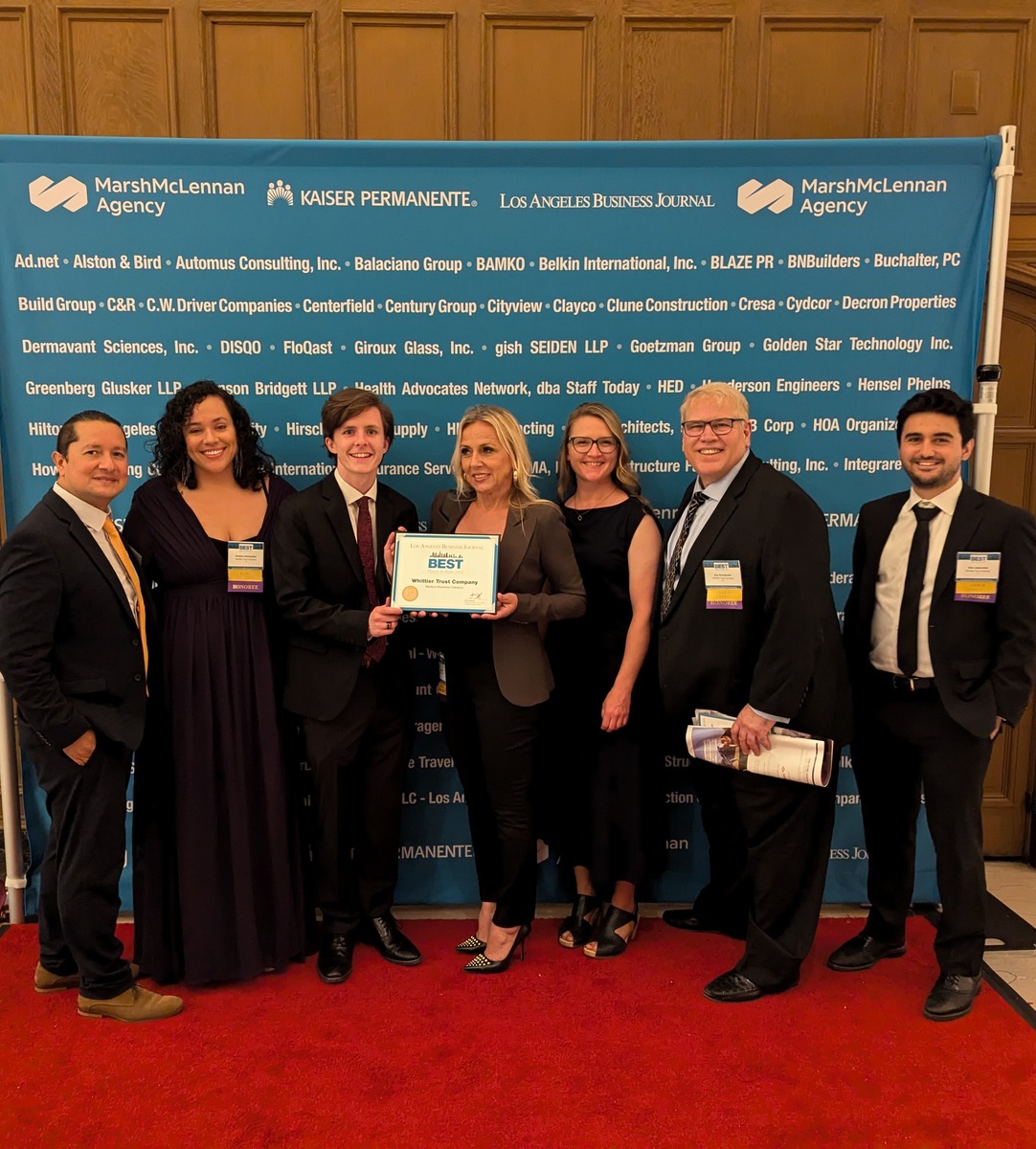Why a long-term approach is a smart strategy, regardless of the economic outlook.
It’s nearly impossible to turn on the television or read an economic journal without being confronted with news about stock market volatility and concern about interest rate fluctuations. Ultimately, market factors are always in play. Economies, and the components that make them up, are always fluid.
“While the uncertainty in the interest environment has affected our ability to buy properties, the fundamentals of the properties haven't changed much,” says Whittier Trust Vice President of Real Estate Jorge Ramos, who advocates a long-term approach to real estate investing. “We're still finding quality properties that we like and ones we feel could ride out any cycle in terms of valuation. The properties are just more of a challenge to identify.” Here are some of the reasons why a long-term approach is a winning strategy for real estate investments.
A Good Buy
 When Whittier Trust’s real estate division evaluates a prospective investment opportunity, they are looking for population and job growth over time. While any location is open for consideration, Whittier tends to focus on major cities that have a long-term track record, as opposed to small towns with sudden surges. “We want to invest in locations that will do well over a long period,” Ramos says, which can translate into more secure investments for Whittier Trust’s clients.
When Whittier Trust’s real estate division evaluates a prospective investment opportunity, they are looking for population and job growth over time. While any location is open for consideration, Whittier tends to focus on major cities that have a long-term track record, as opposed to small towns with sudden surges. “We want to invest in locations that will do well over a long period,” Ramos says, which can translate into more secure investments for Whittier Trust’s clients.
Although the team reviews various property types, most of Whittier Trust’s recent investments have been in multifamily properties. The team has been focused on investments between $15-30M in client equity. Investigating whether rents are increasing in the market, along with occupancy rates and demand for housing, are key to our evaluation. Whittier Trust’s investment group becomes the sole limited partner, holding 90-95% of a project’s equity, while an operating partner familiar with the market and property type typically holds a 5-10% investment and the responsibility of day-to-day management. Key elements are investigated and evaluated to determine whether a project has the potential to be a viable and opportunistic investment.
Patience for the Long-Haul
 When Whittier Trust embarks on a new real estate investment, the team generally looks at investments on a 5 to 10-year horizon, although they are flexible should the right opportunity present itself. It’s a vastly different approach than the goal of making a quick return or planning to “flip” a property. “Within that range, there will likely be an opportunity to have a good outcome for the asset. A long-term strategy is important because it makes you less susceptible to economic cycles,” Ramos explains.
When Whittier Trust embarks on a new real estate investment, the team generally looks at investments on a 5 to 10-year horizon, although they are flexible should the right opportunity present itself. It’s a vastly different approach than the goal of making a quick return or planning to “flip” a property. “Within that range, there will likely be an opportunity to have a good outcome for the asset. A long-term strategy is important because it makes you less susceptible to economic cycles,” Ramos explains.
With housing costs—both for single-family homes and rents—on the rise across the United States and interest rates climbing, it’s vital to look toward markets that have a proven track record. “While everything's fair game, there are certain markets that have fared better. We gravitate towards markets that demonstrate greater staying power,” Ramos says. Even with some market volatility, planning to hold onto a piece of real estate for a decade or more gives the investment time to produce solid returns for Whittier’s clients.
Interest Rates’ Impact on Real Estate Investing
 As real estate investors are aware, a property is worth what someone is willing to pay for it. However, during a period of ultra-low interest rates, buyers could afford to pay more for properties in some cases. That’s changing amid higher interest rates, and it requires a nuanced approach to get the best result for Whittier Trust clients.
As real estate investors are aware, a property is worth what someone is willing to pay for it. However, during a period of ultra-low interest rates, buyers could afford to pay more for properties in some cases. That’s changing amid higher interest rates, and it requires a nuanced approach to get the best result for Whittier Trust clients.
“We're at a certain place in terms of valuation based on cap rates,” Ramos explains, adding that interest rates have increased by approximately three and a half percentage points since the beginning of 2022. “Valuations haven’t necessarily gone down as quickly. Interest rates are significantly higher than the cap rates on many properties, which means that the unlevered yield would be lower than the interest you're paying, leaving you in a position where you have to fund debt service initially, as the property stabilizes.”
Whittier Trust’s Real Estate division looks for investments that are both solid buys and growth opportunities, with the objective of generating lucrative returns, even in the face of interest rate fluctuations. And should interest rates drop over the life of a property, refinancing for a more advantageous position is possible.
Building a Legacy
This long-term approach perfectly aligns with one of Whittier Trust’s core tenets: legacy-building by passing wealth intergenerationally. “We know that there is staying power in real estate. History favors the patient investor,” Ramos says.
Approaching real estate investments conservatively so that they will perform well over time includes going back to basics to make sure the fundamentals are solid, choosing a good location, partnering with top-notch management, and optimizing the debt on the property. When Whittier Trust closes any deal, “we thoroughly understand the market conditions that will make the property perform well,” Ramos says.
If you’re ready to explore how Whittier Trust’s real estate services can work for you, your family, and your portfolio, start a conversation with a Whittier Trust advisor today by visiting our contact page.
From Investments to Family Office to Trustee Services and more, we are your single-source solution.




























 Benjamin Franklin knew a thing or two about many topics, including, as it turns out, estate planning. As he famously warned,
Benjamin Franklin knew a thing or two about many topics, including, as it turns out, estate planning. As he famously warned,  “With unexpected life changes, people are often overwhelmed by the alteration of their family structure and the complexities of the estate settlement process,” says Baeza. “One of the reasons Whittier excels in this area is our ability to retain, maintain, and organize the essential documents needed to settle the estate properly.”
“With unexpected life changes, people are often overwhelmed by the alteration of their family structure and the complexities of the estate settlement process,” says Baeza. “One of the reasons Whittier excels in this area is our ability to retain, maintain, and organize the essential documents needed to settle the estate properly.”